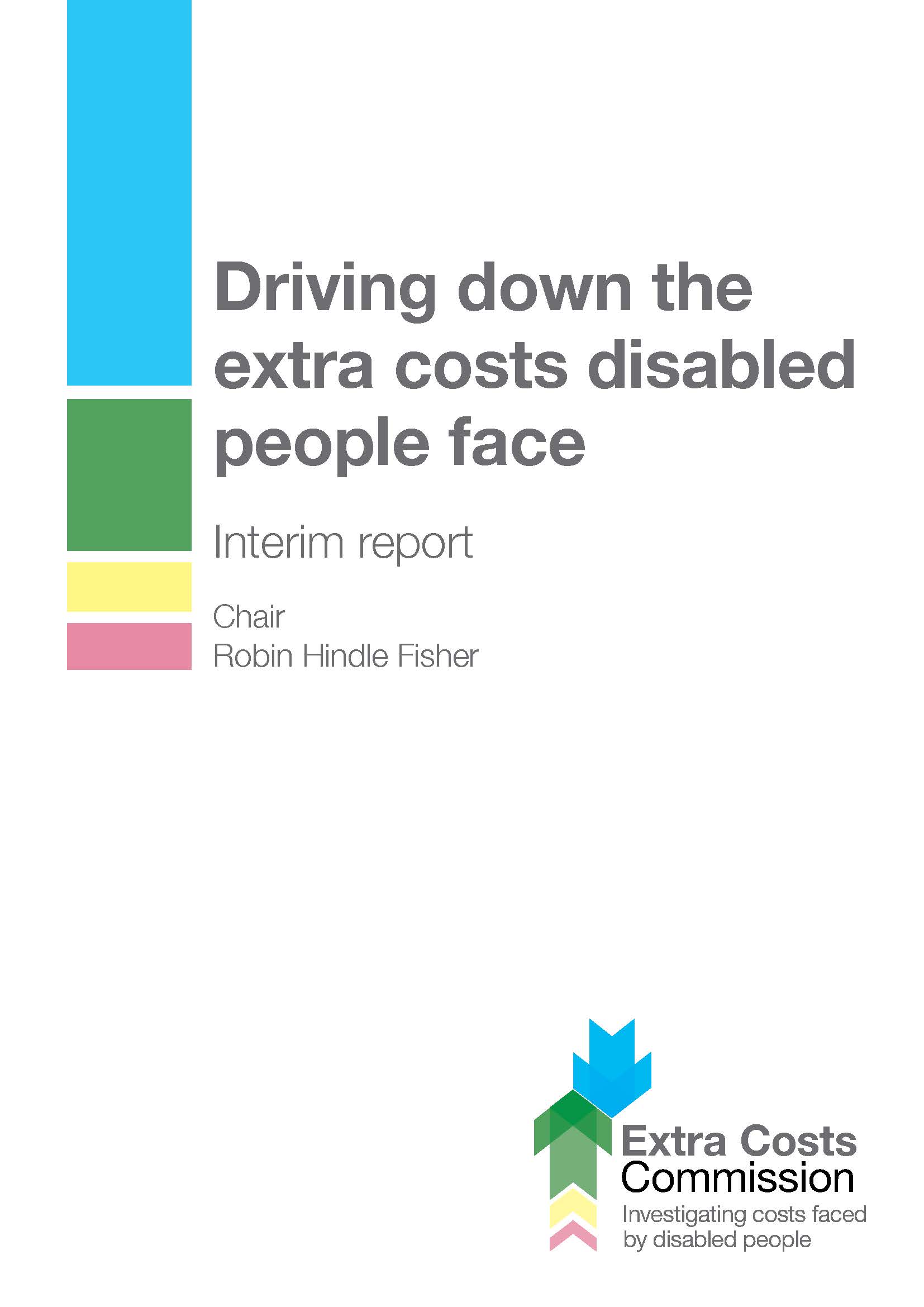Robin Hindle Fisher, Chair of the independent Extra Costs Commission, blogs about the Commission’s interim report and its blueprint for reducing costs for disabled people.
I know from my own personal experience that disabled people often pay more than others for the same goods and services. That’s why I agreed to lead an independent panel of business people – the Extra Costs Commission – on a year-long inquiry into how we can bring down the premium that disabled people and their families pay.
We are taking a close look at which markets could be better at supplying goods and services to disabled people. We’ve reached the half way stage and today our interim report sets out a blueprint for business to value and serve the so-called ‘purple pound’.
But, first to get an idea of what we are grappling with, let’s take a look at the impact of extra costs on one family. Thirty nine year old Emily lives in Eastbourne with her husband and four children – Lucy, 16, William, 12, Oscar, six, and Reuben, who’s four. Both the younger boys have autism, and Emily has had Myalgic Encephalopathy (ME) for many years, which means her energy and movement have been limited. She is recovering now, and has recently returned to work, but she still uses a wheelchair for long distances. In every aspect of life her family is trying to meet the extra costs of disability.
Government action to address these extra costs has focused on raising the income of disabled people through the welfare system, through extra costs payments (Disability Living Allowance, Attendance Allowance and the Personal Independence Payment). Until now, very little has been done by anyone to tackle the root causes of the problem – by looking at how to reduce disabled people’s outgoings in the first place.
This is a missed opportunity.
Today’s report makes the economic case for addressing the issue. Disabled people are loyal consumers, but our research shows that they aren’t afraid to take their custom elsewhere when they receive poor customer service. We’ve highlighted that where shops and businesses don’t meet the needs of disabled consumers, they are losing out on £1.8 billion a month that is being passed over to companies who have recognised the potential of delivering to this group.
According to the Department for Work and Pensions, the ‘purple pound’ in total is worth £212 billion a year. In our report, we’ve set out ways businesses can capitalise on this market, by finding out more about disabled people’s preferences and needs, responding to incentives such as accreditation and awards schemes, and creating an affiliate scheme like a Nectar card to help them serve this group more effectively. The challenge for disability organisations is to increase awareness of the ‘purple pound’ with businesses, provide more information and advice to disabled people to help them make the best value purchasing decisions, and work with disabled people to drive down the extra costs that they face.
It works for everyone. Companies can improve their financial returns, and disabled consumers and their families will get better deals Our interim report should be seen as invitation to a conversation with all those who might play a role in delivering change.

